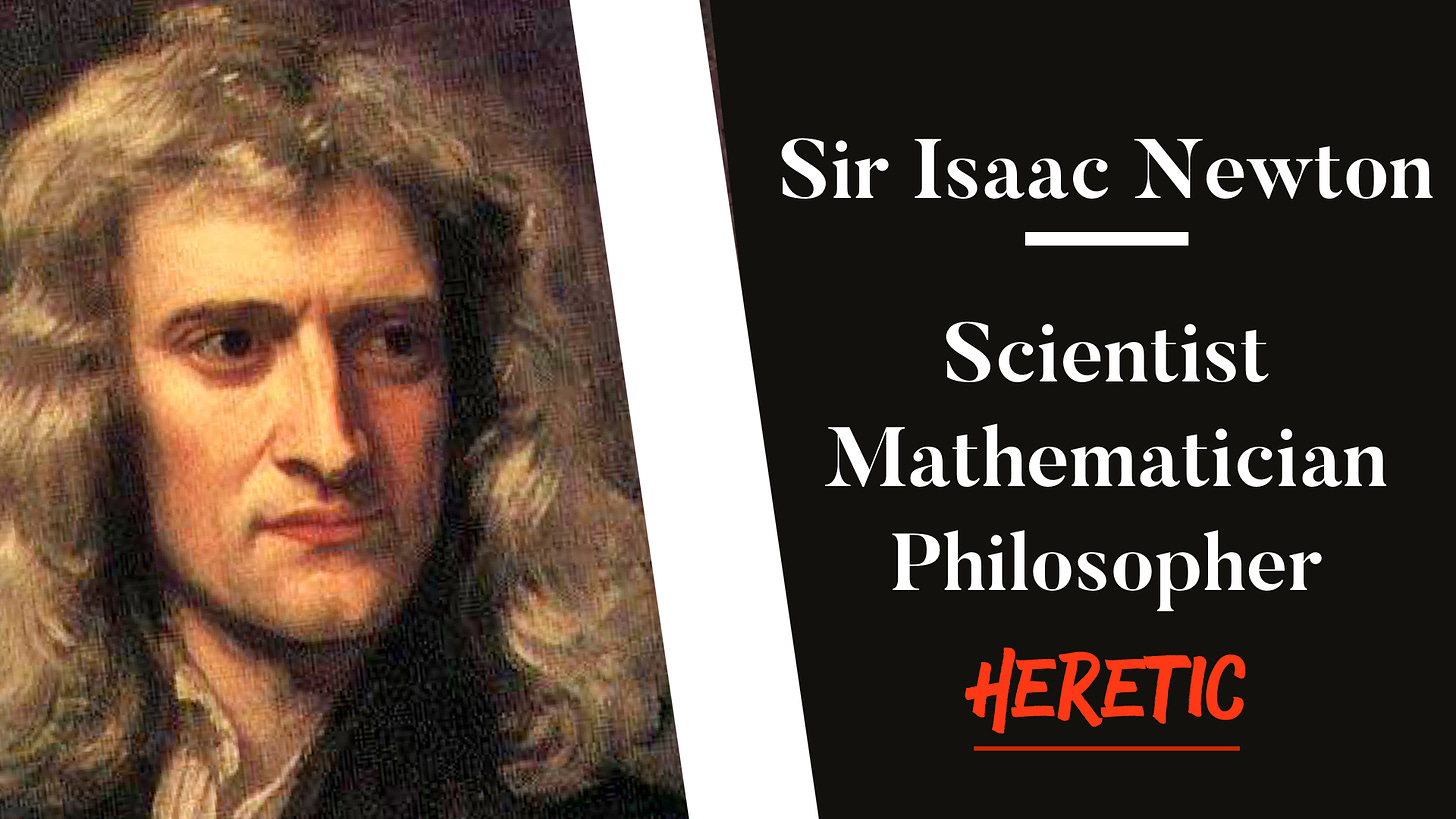Sir Isaac Newton: Rank Heretic
Well, with a title like that, you just had to click didn't you?
What follows isn't a longform takedown on Isaac Newton. However, I was incredibly surprised to read about Isaac Newton's theological beliefs in a recent book that I reviewed, “Athanasius and His Legacy” by Thomas Weinandy and Daniel A. Keating, and I thought I would share what I learned. In that book, Weinandy and Keating considered modern challenges to Athanasius's Trinitarian doctrine. That is where this rollercoaster ride began for me.
Isaac Newton is well known for his work in science and mathematics, as well as his philosophy. Most notably, he "discovered" the law of gravity. If you don't know the story...well, I'm not going to recount it here. It involves an apple. Google is your friend. Alright. Back to the heresy.
According to Weinandy and Keating, Newton became engrossed in theology while a fellow of Trinity College in Cambridge. During his lengthy theological study, wherein he applied scientific methods of his day to the Scripture, Newton became highly skeptical about the status of Christ and the doctrine of the Trinity. He ultimately was convinced, "that the traditional Christian teaching on the full divinity of Christ and the Trinitarian understanding of God was "deeply flawed" (89). From here, he began to read heavily in the patristics and comes to an interesting conclusion: Athanasius was wrong and Arius was right.
According to the authors (and their work is heavily footnoted; please get a copy if you're interested), Newton was convinced that Athanasius's doctrine was a novel invention and the Pope aided and abetted Athanasius's corruption. [Aside: No word on his 17 years in exile.] He goes so far as to say that the fundamental error of worshipping Christ as God is idolatry.
It doesn't end there. Newton involved himself in a movement that came to be called the British Arians, and set out 12 points of his newfound Arianism. These are true Arians, not Unitarians or Socinians. They believe Christ to be a mediator, but he is not the monad God and is a created being. However, while his views are Arian, there's no proof he was pro-Arius. It was more of an avowed anti-Athanasian view with a commitment to Arian belief. Because of Newton, the chair of mathematics was given a permanent exemption from holding to Christian orthodoxy.
This is where it gets extreme. Newton became obsessed with biblical prophecy, writing 4 commentaries on Daniel and Revelation. He became convinced that the "beast" in Revelation was the Roman Catholic Church (not uncommon in his time) and that the Nicene Creed of 381 represented the seventh seal of judgment. In his reading, the Whore of Babylon is the doctrine of the Trinity. Isaac Newton made Left Behind look like Calvin's Institutes. Newton believed he was part of a faithful remnant standing against the perversion of Athanasius, Rome, and Trinitarianism.
So how did Newton get away with such views in an era dominated by the Church of England? Simple: he didn't publish his views. Though Newton would mentor two of the most prominent proponents of British Arianism, he did not put his own views on the record for examination. Many of his fellow citizens who did publish such views lost their posts. While he shared his views in private, "Newton hid his theological views to preserve his place in society" (93). Additionally, he seemed to belief the doctrine was losing it's hold anyway. Why risk it?
Frankly, I was stunned reading this. I certainly did not learn it in any history, science, or philosophy course. And now you know, too.
Isaac Newton was a heretic.




